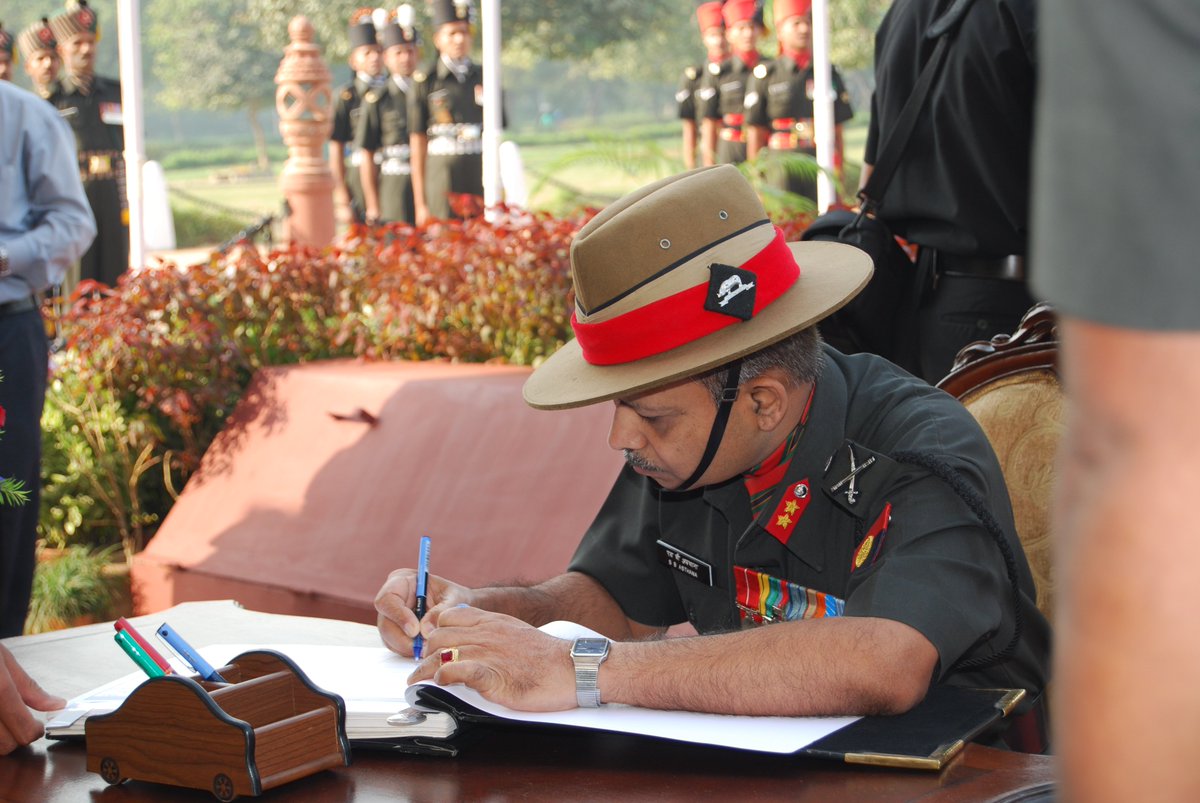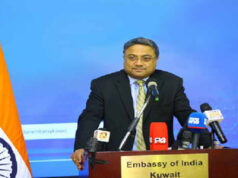
In an interview with Diplomacy & Beyond, Major General SB Asthana, SM, VSM, Chief Instructor USI of India shares his views on the Doklam standoff between India and China. The standoff was a litmus test for India in terms of how resolutely it could stand up against a belligerent China to protect the interests of Bhutan as well as its own. Here are the excerpts..
- Sir, what’s your take on the entire Doklam issue? Don’t you think the standoff exposed the salience of larger questions about the tricky nature of the relationship between India and China?
Doklam stand-off is neither the first, nor the last stand-off between India and China, nor is it the longest one. The problem originates from the boundary issue between both the countries. Out of 14 countries with which China had border issues, it has resolved with 12 except India and Bhutan, With India, China has been delaying settling the border issue on some pretext or the other, and with Bhutan it has been shifting its claim lines many times. Even if resolution of boundary is considered to be a complex problem, the delimitation, delineation and demarcation of Line of Actual Control (LAC), is an inescapable necessity. It needs to be understood that with un-demarcated LAC, troops of both sides will patrol as per their own perceptions of LAC; some areas will be common which both sides will patrol to be its own.
Every such patrol will be called as intrusion by the other side, hence such face-offs will continue till it’s demarcated, and the identification of its demarcating line is made known to troops manning the borders. What makes Doklam slightly different is that in this case China was trying to break the status quo of the Doklam triangle unilaterally by constructing a road, despite having an agreement with India in 2012, not to do so unless all the three parties (China, India and Bhutan) negotiated together. This left Indian troops with no option but to step out and stop Chinese road construction activity physically.
The backdrop for selecting Doklam as a point to needle India also needs to be put in context. The possible reasons could be:-
India and Bhutan boycotted Belt and Road Forum (BRF) for International Cooperation, hence Chinese may have felt that Doklam ingress could embarrass both the countries simultaneously. Stressing on 1890 Treaty by China (Signed between China and British India) takes away the logic of Tibet, as a player in dealing with India, thus a subtle message to Dalai Lama that he is not a stake holder in Tibet.
Test the depth of Indo- Bhutanese security relationship.
The area being too close to Siliguri Corridor/Chicken’s Neck, India had to be concerned and had to decide whether to intervene or otherwise in India’s own national interest, thereby conveying a message of standing up or not standing up to a challenge from Beijing in future too.
As the construction activity was in Bhutanese Territory, a strong Indian reaction was not expected. Chinese could have thought that in case India takes action, China can proclaim itself as an innocent victim and blame India to be an aggressor. China did try to sell this narrative, but apparently the world community did not buy it. I do not think India-China relations to be as tricky as is made out to be. Any two neighbors, which have ambition of growth, will somewhere cut across in each other’s interests and India and China are no exception having own share of issues of divergences and convergences.
I see India China relations as of “Co-operation and Competition” together, as both need each other’s consumer markets to grow further. China is a much larger economy, and India is the fastest growing economy. China’s Defence Forces are larger in numbers, but it has much larger boundaries, concerns/commitments, and its capabilities are yet to be tested after 1979, whereas Indian Forces, although smaller in numbers, have been on a winning streak since 1971. Both countries can co-exist in Asia. Incidents like Doklam are too small to upset the equation of “Co-operation and Competition”, which will continue.
- Was China surprised by India’s action?
China was surprised by an unexpectedly strong Indian reaction, and then it realized that the point chosen was such, where it had strategic and tactical disadvantages in escalating it. China was also surprised that in multiparty democracy like India, all parties are on the same page as far as stand on sovereignty and Doklam Issue is concerned.
In the parliamentary session on this issue, every political party was in sync with the response. This left China extremely disturbed about it, churning out fresh provocative statements almost on daily basis, launching psychological and propaganda war, and resorting to every possible means short of war to put pressure on India to withdraw its troops.
This episode proved a point that India of 2017, is a strong country which can stand up to anyone trying to threaten its national interest, backed by strong military to rough out the tough conditions, and mature diplomacy not making irresponsible statements. It also proved the resolve of both countries to set aside minor irritants for healthy relationship with neighbors for bigger gains.
- How do you think India can be better prepared in managing its borders, so as to address the future security issues?
India was well prepared at the Doklam triangle to face any eventuality. However in the overall context India needs to improve its infrastructure up to and along the LAC and also improve intersectoral connectivity for faster movement of military forces and equipment.
The infrastructure development includes land, air communication, accommodation, storage and all types of facilities along the LAC. India also needs to improve the military equipment and logistics resources availability, self sufficiency, manufacturing capability and equipment profiling (modernization) to increase its combat capability of its Armed Forces. It is a continuous process, and with ‘Make in India’ efforts I think it is working towards this goal.
- Do you anticipate that Bhutan will keep supporting India on this issue in the near future as well?
I have every reason to believe that Bhutan will continue supporting India on this issue in the near future as well. During Doklam crisis China tried everything possible (including Purse diplomacy) to woe Bhutan to make it their bilateral issue, but Bhutan did not waver. There is no change to security arrangements between India and Bhutan pre and post Doklam. The most important reason is that both the countries suffer a common problem of unsettled border with China, which China does not seem to be keen to resolve. King Wangchuk’s visit to India in early November post Doklam episode, strengthening relationship between both countries, bears testimony to this belief.
- Are there further chances of escalation under the present circumstances?
China and India have stable relations with each other since 1962, despite their divergences in various issues. Both countries are and will remain geographic neighbors (A fact that no one can change), their destinies are related. In this era of alliances, with economy taking the centre stage in international relations, I do not see the prospects of any escalation/confrontation in the near future. This is also certain that both countries are strong enough to the extent that none can dictate its strategic choices to another.
Both countries are fairly mature in inter-se dealings and have major economic interests in each other, because of future growing consumer markets, desire to grow to bring prosperity to their people, hence no one will like to have diversions from its aims by such incidents, in the present circumstances. I sincerely think that China and India will leave the ghost of Doklam incident behind and steer a positive and trustworthy relationship for peace and prosperity of the region.








